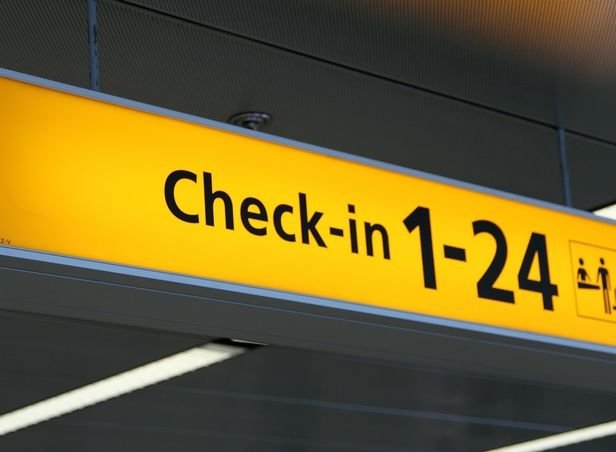Spanish firms benefitting from increase in M&A ‘dual-tracks’

Private equity funds, sovereign funds and infrastructure funds fight for assets in Spain’s finance, insurance, telecoms and real estate sectors
 With a number of substantial Spanish M&A transactions having been completed in the first quarter of 2018, lawyers report that, in general, deals activity is increasing as a wide range of investors – including private equity funds, sovereign funds and infrastructure funds – compete for assets. The effect of this intensifying battle for deals means that ‘dual-tracks’ – that is, auctions involving multiple bidders – are generating a steady flow of work for Spanish M&A lawyers.A number of massive deals have already been finalised this year. Notably, Garrigues advised CVC Capital Partners on the €3.8 billion acquisition of a 20 per cent stake in Gas Natural Fenosa from Repsol, while Freshfields Buckhaus Deringer was instructed by Orient Hontai Capital in relation to its €1 billion acquisition of a 53.5 per cent stake in Imagina Media Audiovisual, part of Spain’s Mediapro Group. These large deals are indicative of investors’ growing interest in Spanish transactions. “We are already seeing a rise in the volume of M&A deals this year,” says Alejandro Ortiz, partner at Linklaters in Madrid. According to Ortiz, not only are there M&A transactions involving public and private companies currently being negotiated, major investors such as private equity funds, sovereign funds and infrastructure funds are also in the process of exploring potential deals in Spain. He adds: “Business consolidation is expected in many sectors, such as financial, insurance, telecoms and real estate.” Substantial liquidity in the market means there will be an increase in M&A deals in the coming year, according to Garrigues partner Mónica Martín de Vidales. She adds that Spanish companies are looking to expand significantly and this will also be a key driver of transactional activity, as will the “heightened interest of international investors” in Spain.
With a number of substantial Spanish M&A transactions having been completed in the first quarter of 2018, lawyers report that, in general, deals activity is increasing as a wide range of investors – including private equity funds, sovereign funds and infrastructure funds – compete for assets. The effect of this intensifying battle for deals means that ‘dual-tracks’ – that is, auctions involving multiple bidders – are generating a steady flow of work for Spanish M&A lawyers.A number of massive deals have already been finalised this year. Notably, Garrigues advised CVC Capital Partners on the €3.8 billion acquisition of a 20 per cent stake in Gas Natural Fenosa from Repsol, while Freshfields Buckhaus Deringer was instructed by Orient Hontai Capital in relation to its €1 billion acquisition of a 53.5 per cent stake in Imagina Media Audiovisual, part of Spain’s Mediapro Group. These large deals are indicative of investors’ growing interest in Spanish transactions. “We are already seeing a rise in the volume of M&A deals this year,” says Alejandro Ortiz, partner at Linklaters in Madrid. According to Ortiz, not only are there M&A transactions involving public and private companies currently being negotiated, major investors such as private equity funds, sovereign funds and infrastructure funds are also in the process of exploring potential deals in Spain. He adds: “Business consolidation is expected in many sectors, such as financial, insurance, telecoms and real estate.” Substantial liquidity in the market means there will be an increase in M&A deals in the coming year, according to Garrigues partner Mónica Martín de Vidales. She adds that Spanish companies are looking to expand significantly and this will also be a key driver of transactional activity, as will the “heightened interest of international investors” in Spain.
 Political crisis
Political crisis
Despite the political crisis in Catalonia, Spain’s relative political stability – in contrast to previous years when the country’s political parties had undergone months of negotiations in an attempt to form a government – is also attracting investors, says Jorge Vasquez, partner at Ashurst in Madrid. He adds that the large amounts of liquidity are making the market seller-friendly. “There are still a number of opportunities for more opportunistic investors off the back of non-core assets being sold,” he explains. “In turn, ‘regular’ performing businesses and companies are also coming on the market, with a number of deals in different sectors and market-size segments.”Spanish M&A deals are currently a priority for many international investors. “Investors in countries such as Germany, France and the UK will continue to look towards Spain,” says Álvaro López-Jorrín, partner at Garrigues. “Outside Europe, we think the US and Australia will also be key investors targeting Spanish assets.” In addition to interest from private equity funds in Europe and North America, pension funds and sovereign funds from Canada, Australia, Asia and the Middle East are also targeting, says Ortiz. “Spain continues to be an important destination for incoming Latin American investment too,” he adds. However, with increasing investor confidence in Spain, comes huge competition between bidders. “Some industrials are increasingly competing with financial investors (such as private equity houses) and in turn, fund investors are also increasingly looking for direct investment.” Consequently, with much more competition for good companies, rather than there being changes to the way M&A deals are being structured, lawyers are now seeing different trends in deal mechanics and development – a significant one being dual-tracks that are non-exclusive protracted negotiations with several investors going on at the same time. “This means a very quick change of pace and direction of the initial deal structure, sometimes leading to very quick deals when the right partner is found,” says Vasquez. “There is a lot of competitive tension and so (for lawyers) auctions and dual-tracks are the ‘bread and butter’ these days.”












